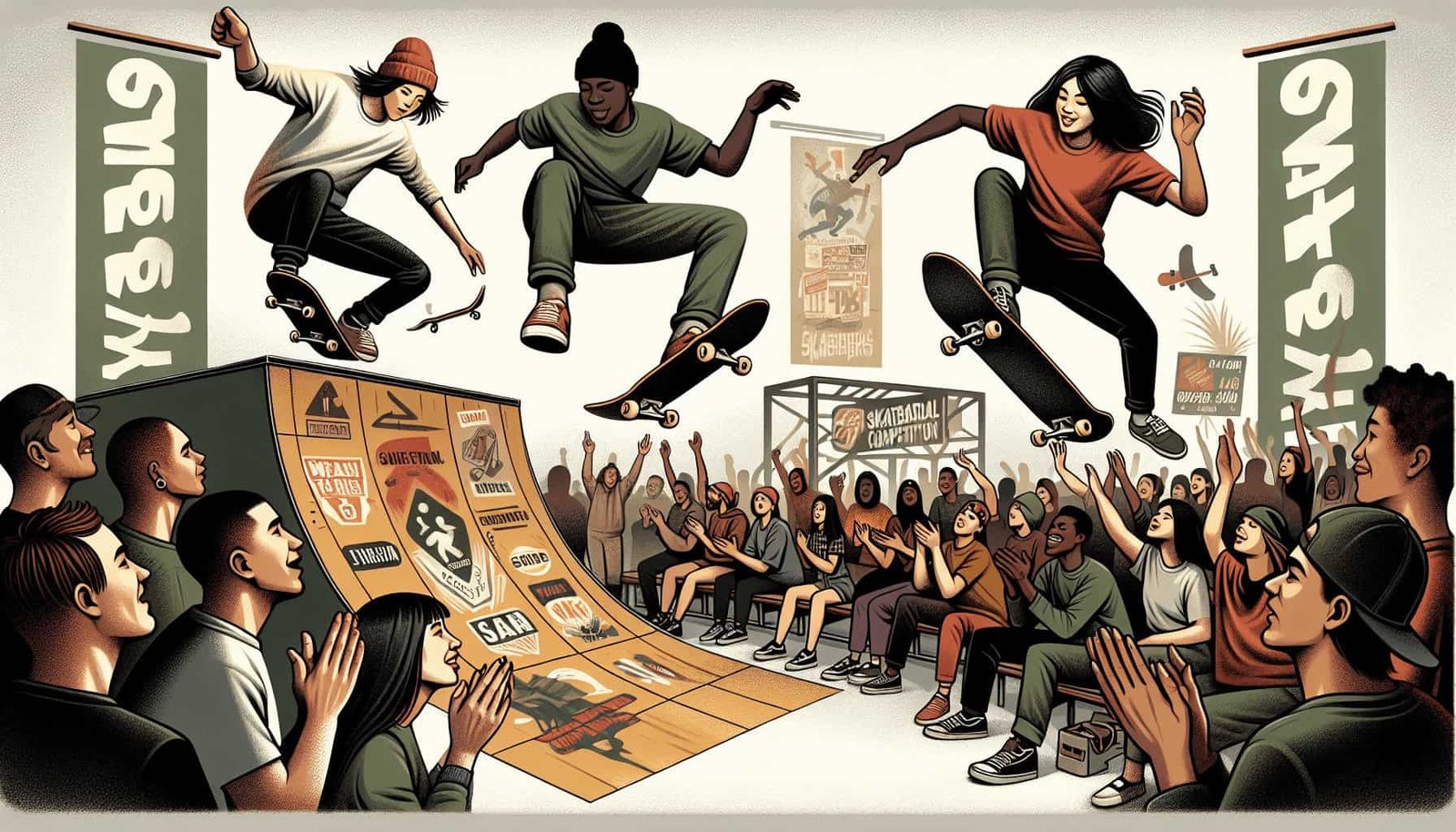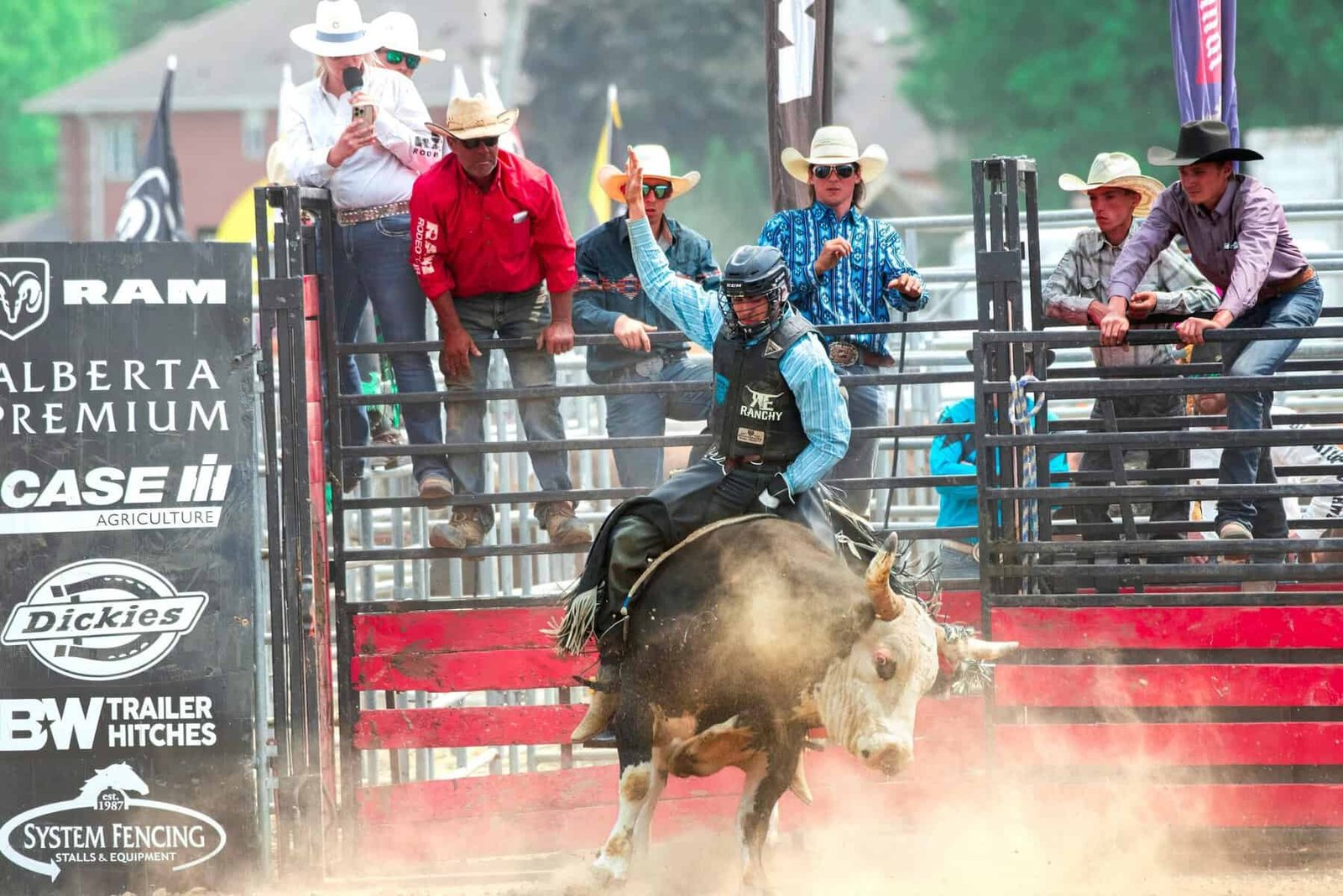If you’ve ever dreamt of showcasing your impressive skateboarding skills to a passionate audience, then you might be wondering how to get involved in the exhilarating world of local skateboarding competitions or events. Whether you’re a seasoned skater looking for new challenges or a beginner eager to join the vibrant skateboarding community, this article will provide you with valuable insights and tips to kick-start your journey towards becoming a contender in these thrilling events. So grab your board, tighten those trucks, and get ready to learn how you can make your mark in the local skateboarding scene.
Research local skateboarding competitions or events
To get started in the world of local skateboarding competitions and events, it’s important to do your research. Here are a few steps you can take to find out about upcoming opportunities:
Check local skateboarding clubs or organizations
Start by checking if your community has any dedicated skateboarding clubs or organizations. These groups often host or promote local skateboarding competitions and events. You can search online, check community bulletin boards, or ask fellow skateboarders for recommendations. These clubs and organizations can serve as valuable resources for staying connected to the skateboarding community and finding out about upcoming events.
Follow skateboarding social media accounts
In this digital age, social media platforms have become great tools for staying updated on local skateboarding competitions and events. Search for and follow social media accounts of skateboarding clubs, organizations, and local skate parks. Not only will these accounts often share information about upcoming events, but they may also post skateboarding tips, tricks, and videos, providing you with inspiration and guidance to improve your skills.
Visit local skate parks
One of the best ways to stay informed about local skateboarding competitions and events is to visit your local skate parks regularly. Keep an eye out for flyers or notices posted at the park, as these often contain information about upcoming competitions or events. Additionally, strike up conversations with fellow skateboarders at the park and ask them if they know of any local events or competitions. The skateboarding community is generally very supportive and eager to share information with others.
Attend skateboarding events or competitions
Attending local skateboarding events or competitions is not only a great way to immerse yourself in the skateboarding culture, but it can also help you identify future opportunities to participate. By attending these events, you can observe other skateboarders in action, learn about different competition formats, and gather information about future events. Take advantage of these events to network with other skateboarders and build connections within the local skateboarding community.
Understand the different types of skateboarding competitions
Skateboarding competitions come in various formats, each with its own unique set of rules and requirements. Understanding these different types of competitions can help you determine which ones align with your skills and interests. Here are a few common types of skateboarding competitions:
Street skateboarding competitions
Street skateboarding competitions take place in urban environments, typically utilizing a variety of street obstacles such as stairs, handrails, and ledges. Skateboarders are judged based on their creativity, skill, and execution of tricks performed within the designated course. These competitions often replicate the style of skateboarding seen in city streets and emphasize technicality and versatility.
Vert skateboarding competitions
Vert skateboarding competitions are held on specialized ramps known as vert ramps, which feature a large vertical or near-vertical transition. Skateboarders showcase their aerial skills, performing high-flying tricks and maneuvers above the ramp’s coping. These competitions require a different set of skills compared to street skateboarding, as they focus more on big airs, spins, and grabs.
Park skateboarding competitions
Park skateboarding competitions take place in skate parks that feature a mix of both street-like obstacles and ramp elements. Skateboarders navigate the park’s terrain, incorporating both technical street-style tricks and more transition-focused maneuvers. These competitions offer a balanced blend of street and vert skateboarding, highlighting a skater’s ability to adapt to different types of obstacles.
Bowl skateboarding competitions
Bowl skateboarding competitions are held in large, bowl-shaped structures known as skate bowls or pools. These bowls are typically made of concrete and feature smooth, curved transitions that allow skateboarders to generate speed and execute flowing lines and tricks. Bowl competitions emphasize style, flow, and creativity, with skaters utilizing the bowl’s transitions to perform tricks and combinations.
Understanding the different types of skateboarding competitions can help you tailor your training and preparation to excel in the specific format of an event. It’s essential to choose competitions that align with your skills and style, as this will increase your chances of performing well and enjoying the experience.
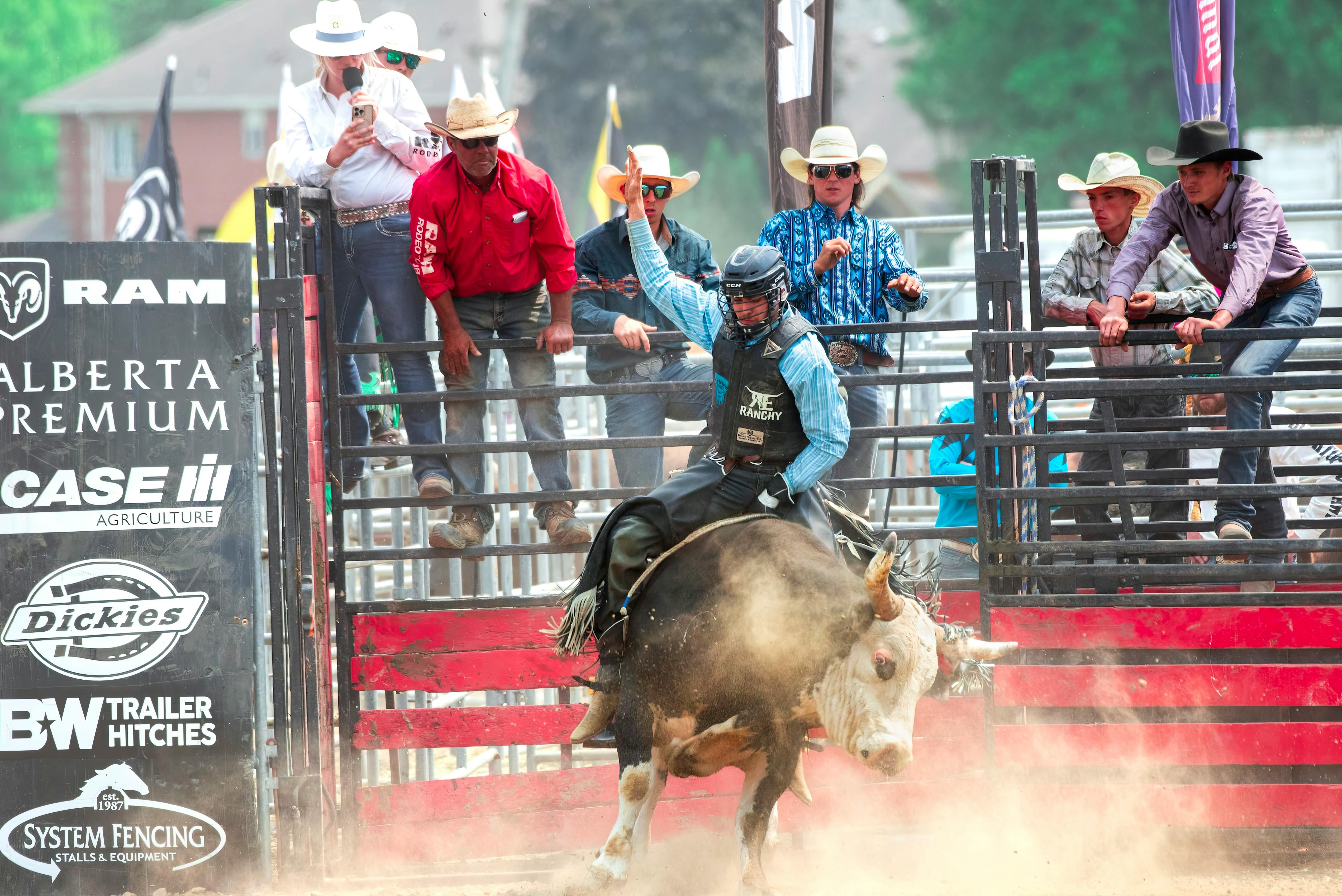
Improve your skateboarding skills
To be successful in local skateboarding competitions or events, it’s crucial to continually improve your skateboarding skills. Here are some tips to help you enhance your skills and take your skateboarding to the next level:
Practice regularly
Consistent practice is the key to improving any skill, and skateboarding is no exception. Set aside regular skateboarding sessions to work on your techniques, tricks, and overall control. The more time you spend on your skateboard, the better your muscle memory will become, leading to smoother execution of tricks and maneuvers.
Learn new tricks
Expanding your trick repertoire can greatly enhance your performance in skateboarding competitions. Challenge yourself to learn new tricks and variations, gradually building up a diverse bag of tricks. Experiment with different flip tricks, slides, grinds, and grabs to add variety and creativity to your runs. Learning new tricks not only makes your skateboarding more interesting but also helps you stand out during competitions.
Seek guidance from experienced skateboarders
Seeking guidance from experienced skateboarders can provide valuable insights and tips to improve your skills. Approach more experienced skateboarders at your local skate park or events and ask for pointers and advice. Many skaters are happy to share their knowledge and offer guidance to those who show a genuine passion for skateboarding. You can also consider taking skateboarding lessons or joining a skateboarding clinic to receive professional guidance and coaching.
Join a skateboarding team
Joining a skateboarding team can provide you with a supportive community and opportunities for growth. Look for local skateboarding teams or groups that cater to various skill levels and styles. Being part of a team allows you to train together, share tricks, and push each other to improve. It also opens doors to team-based competitions and collaboration, further enhancing your skateboarding journey.
By consistently practicing, learning new tricks, seeking guidance, and joining a skateboarding team, you can continually progress and improve your skills, setting yourself up for success in local competitions and events.
Connect with the local skateboarding community
Getting involved in local skateboarding competitions and events goes beyond just honing your skills. Building connections and becoming part of the local skateboarding community can lead to numerous opportunities and a more fulfilling skateboarding experience. Here are some ways to connect with the local skateboarding community:
Attend skateboarding meetups or sessions
Attending skateboarding meetups or sessions is a fantastic way to meet other skateboarders and build connections. These informal gatherings often take place at local skate parks or designated spots and provide an opportunity to skate with like-minded individuals. Participate in these meetups regularly and engage in conversations with other skateboarders, sharing tips and experiences. Building relationships within the community can open doors to information about upcoming events, competitions, and potential collaborations.
Participate in local skateboarding clubs or organizations
Joining a local skateboarding club or organization can provide you with a structured framework for involvement and community engagement. These clubs often organize regular skate meetups, workshops, and events, offering opportunities to socialize, learn new skills, and contribute to the growth of the local skateboarding scene. By becoming a member, you’ll be able to connect with other skateboarders, stay updated on upcoming events, and actively contribute to the community’s development.
Form connections with other skateboarders
Approach other skateboarders at your local skate park or events and strike up conversations. Building relationships with fellow skateboarders allows you to share experiences, learn from one another, and support each other’s progress. By being friendly and open, you’ll find that the skateboarding community is generally welcoming and eager to connect with newcomers. These connections can lead to the discovery of new skate spots, collaboration on videos or projects, and even partnerships in competitions.
Engage in social media groups or forums
In today’s digital age, social media platforms offer a powerful way to connect with the skateboarding community. Join online skateboarding groups, forums, or communities specific to your local area. Engage in discussions, ask questions, and share your own experiences. These online platforms provide a space for skateboarders to connect, exchange information, and support one another. By actively participating in these communities, you’ll expand your network and increase your visibility within the local skateboarding scene.
By actively connecting with the local skateboarding community, you’ll create a network of like-minded individuals who can offer support, advice, and information about upcoming events. Building these relationships enhances your overall skateboarding experience and provides a sense of belonging within the community.
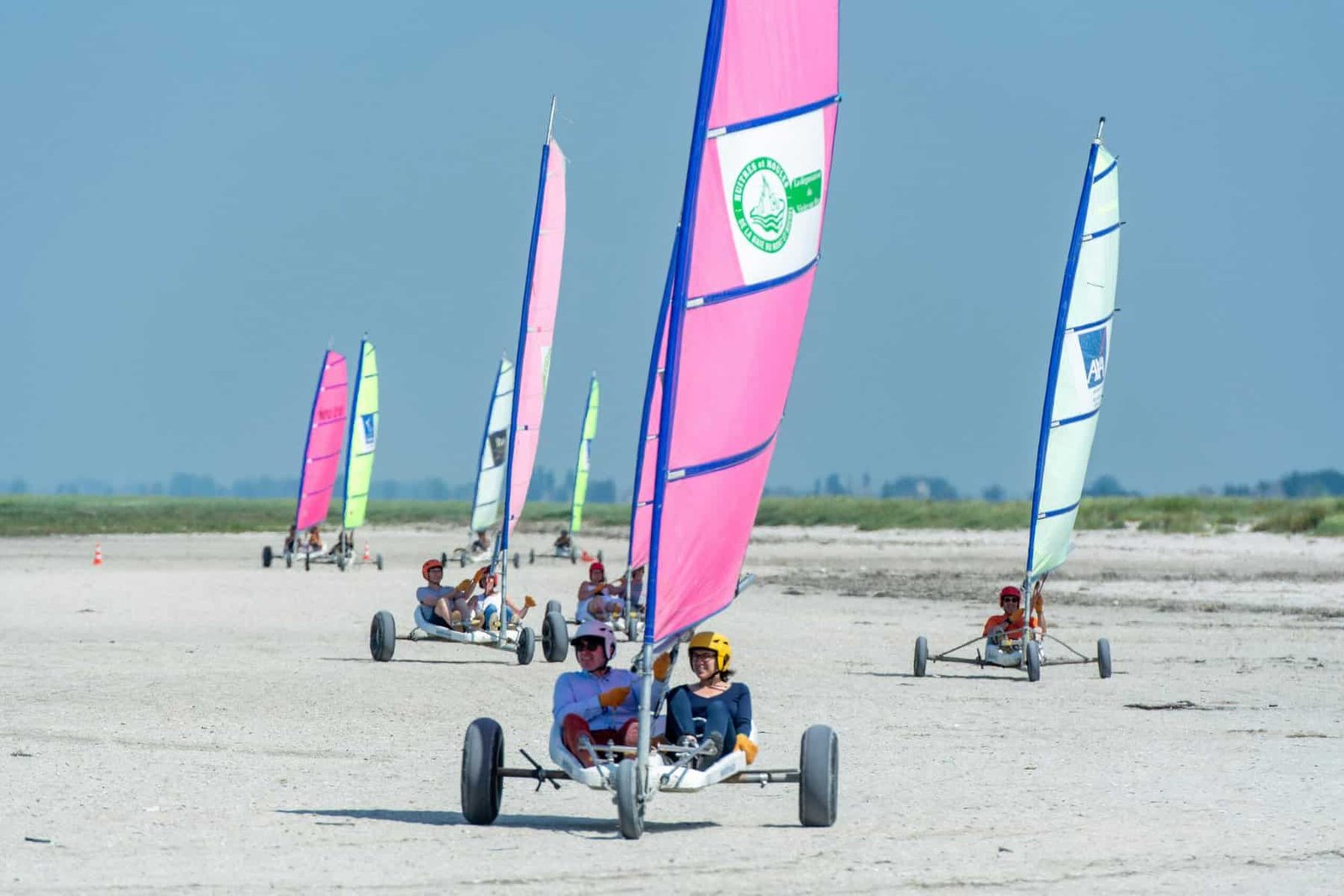
Volunteer or help with organizing local skateboarding events
Getting involved in the organization and execution of local skateboarding events not only allows you to contribute to the community but also provides valuable experience and insight into the world of competitions. Here are some ways you can volunteer or help with organizing local skateboarding events:
Reach out to event organizers
Reach out to the organizers of local skateboarding events and express your interest in volunteering or assisting in any capacity. Let them know about your skateboarding background, your passion for the sport, and your willingness to contribute to the success of the event. Organizers are often grateful for enthusiastic volunteers and may have various roles available, depending on their specific needs.
Offer assistance with event setup or logistics
Events require careful planning and execution, and offering to help with setup or logistics can be invaluable for event organizers. This may involve tasks such as setting up ramps or obstacles, organizing safety equipment, managing registrations, or ensuring smooth transitions between runs. By actively participating in the setup and logistics, you’ll gain a deeper appreciation for the behind-the-scenes efforts involved in organizing skateboarding events.
Volunteer as a judge or official
If you have a good understanding of skateboarding tricks, techniques, and rules, you may consider volunteering as a judge or official for local skateboarding competitions. This role requires a keen eye for detail, fairness, and a solid understanding of competition guidelines. Additionally, you may need to attend training sessions or workshops to familiarize yourself with the judging criteria and standards. Being a judge or official not only allows you to contribute to the event but also deepens your knowledge of skateboarding and enables you to provide valuable insights to fellow skateboarders.
Contribute to event promotion or marketing
Event promotion and marketing play a crucial role in attracting participants and building excitement within the skateboarding community. If you have skills in design, photography, videography, or social media, you can offer your assistance in creating promotional materials or helping spread the word about the event. Collaborate with the event organizers to develop engaging content for social media, design eye-catching flyers, or capture high-quality photos and videos of the event. Your contributions can significantly impact the success and visibility of local skateboarding competitions and events.
By volunteering or assisting with organizing local skateboarding events, you not only give back to the skateboarding community but also gain valuable experience and insight into what goes on behind the scenes. This involvement can deepen your connection to the sport and provide you with a holistic understanding of skateboarding competitions.
Register for local skateboarding competitions
Once you’ve identified a local skateboarding competition or event you’d like to participate in, it’s essential to know the registration process and requirements. Here are some steps to help you register successfully:
Check registration requirements and deadlines
Before registering, carefully review the competition’s registration requirements and deadlines. These could include age restrictions, skill level criteria, specific gear or equipment requirements, and any necessary waivers or consent forms. Ensure that you meet all the prerequisites and gather all the required documentation in advance. Missing deadlines or failing to meet the eligibility criteria could result in your registration being rejected.
Fill out registration forms accurately
When filling out the registration forms, provide accurate and complete information. This may include personal details, emergency contact information, and any specific details required by the competition’s organizers. Double-check your entries for errors or omissions to avoid any complications during the registration process.
Pay any necessary entry fees
Some skateboarding competitions may require participants to pay an entry fee. Make sure to find out the amount, payment methods accepted, and the deadline for submission. Keep a record of your payment and any transaction details for future reference. Timely payment of entry fees is crucial to secure your participation in the competition.
Obtain any required waivers or permits
Certain events may require participants to sign waivers or obtain permits, particularly if the competition takes place on private property or involves high-risk activities. Read through the waivers or permits carefully, seeking legal advice if necessary, to understand the terms and potential liabilities. Ensure that all required waivers are properly signed and submitted within the designated timeframe.
By following the registration process diligently and providing the necessary information and documentation, you increase your chances of securing your spot in local skateboarding competitions. Be proactive in meeting all the requirements and deadlines to avoid any unnecessary complications.
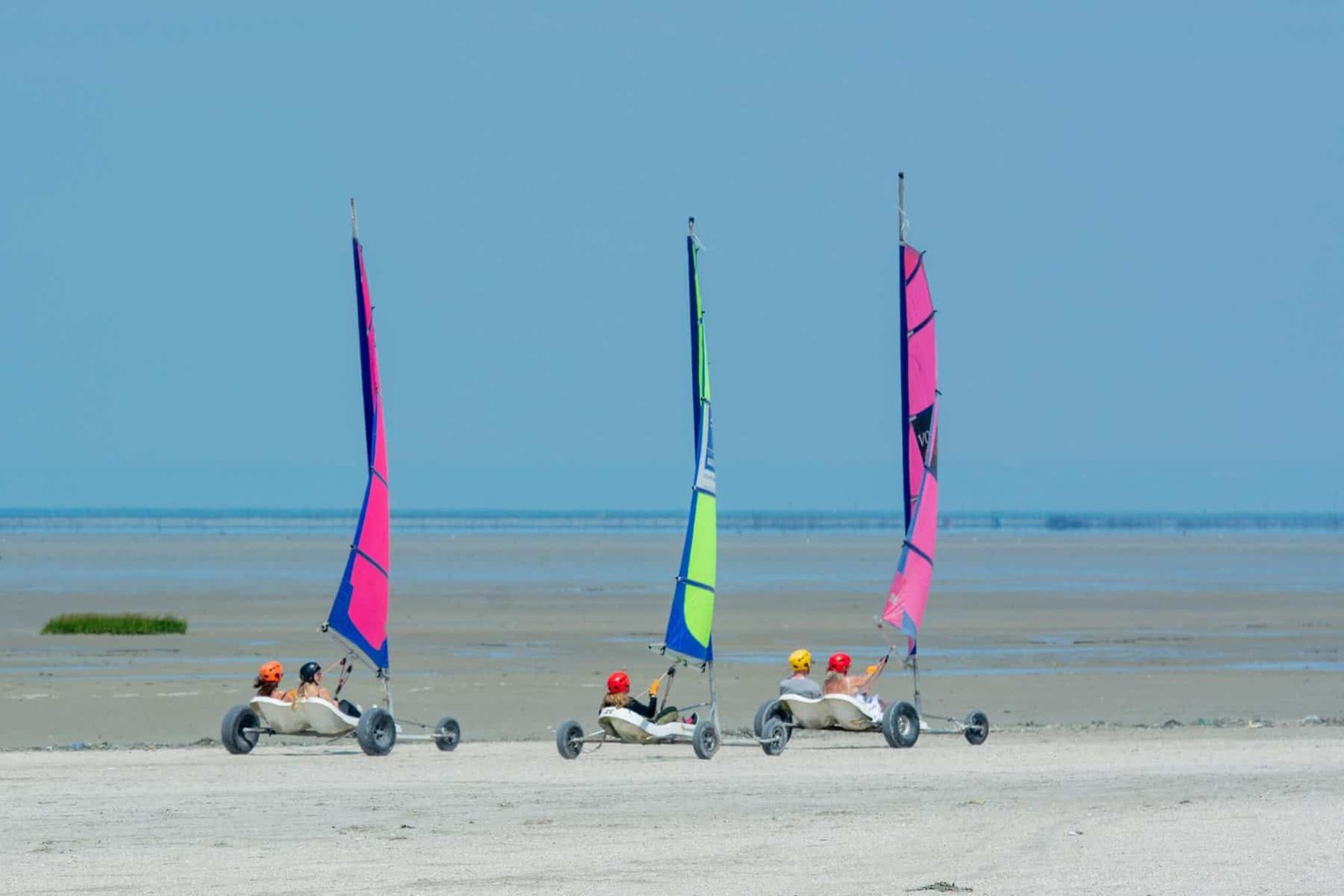
Prepare for the competition
Proper preparation is essential to perform your best during a skateboarding competition. Here are some steps to help you get ready:
Plan your routine or runs
Take the time to plan your routine or runs for the competition. Consider the space, obstacles, and time constraints provided by the competition. Think about the tricks and combinations that showcase your strengths and style. By having a clear plan, you can maximize your practice sessions and ensure that you’re fully prepared for the competition.
Practice specific tricks or maneuvers
Focus on practicing specific tricks or maneuvers that you plan to include in your routine or runs. Identify areas where you may need improvement and dedicate extra practice time to those aspects. Work on perfecting your execution, consistency, and style. Regularly practice under conditions similar to what you expect during the competition, such as the specific skate park or course layout.
Familiarize yourself with competition rules and guidelines
Take the time to familiarize yourself with the competition rules and guidelines. Understand the judging criteria, scoring system, and any specific regulations unique to the event. Knowing what the judges will be looking for can help you tailor your performance and increase your chances of scoring well. Pay attention to any safety rules or protocols to ensure a smooth and safe competition experience.
Ensure your skateboard and equipment are in good condition
Before the competition, thoroughly inspect your skateboard and equipment to ensure they are in good working condition. Check for any cracks, wear and tear, or loose parts that may affect your performance or safety. Make any necessary repairs or replacements, and properly maintain your equipment leading up to the competition. Having a reliable skateboard and properly functioning gear will give you the confidence to perform at your best.
By planning your routine, practicing specific tricks, familiarizing yourself with competition rules, and ensuring your equipment is in top shape, you set yourself up for a successful and enjoyable competition experience.
Participate in local skateboarding events or competitions
The day of the competition has arrived! Here’s how you can make the most of your participation:
Arrive at the event location on time
Arriving at the event location on time is crucial to ensure a smooth and stress-free experience. Give yourself ample time to familiarize yourself with the venue, warm up, and mentally prepare. Rushing or arriving late may leave you feeling flustered and impact your performance. Make sure to account for any potential traffic or logistics challenges and plan your journey accordingly.
Warm up before your scheduled runs
Proper warm-up exercises are essential to prepare your body and mind for the intense physical demands of skateboarding. Engage in dynamic stretching, light cardio exercises, and practice a few basic tricks to warm up your muscles and improve circulation. A good warm-up session helps prevent injuries, enhances your flexibility, and optimizes your performance during the event.
Perform your routine or runs confidently
When it’s time for your routine or runs, approach them with confidence and focus. Trust in your abilities and the training you’ve put in. Stay mentally present and in the moment, avoiding distractions or unnecessary pressures. Execute your tricks and maneuvers to the best of your ability, showcasing your unique style and skills. Remember to have fun and enjoy the experience, regardless of the competition’s outcome.
Support and cheer for fellow participants
Competing in local skateboarding events is not just about your personal performance; it’s also about fostering a supportive and encouraging environment for all participants. Cheer for fellow skateboarders, share positive energy, and offer words of encouragement. By supporting others, you contribute to the overall camaraderie of the event and help create a positive atmosphere for everyone involved.
Participating in local skateboarding events or competitions can be an exhilarating experience. By arriving on time, warming up adequately, performing confidently, and supporting fellow participants, you maximize your enjoyment and create a memorable event for yourself and others.
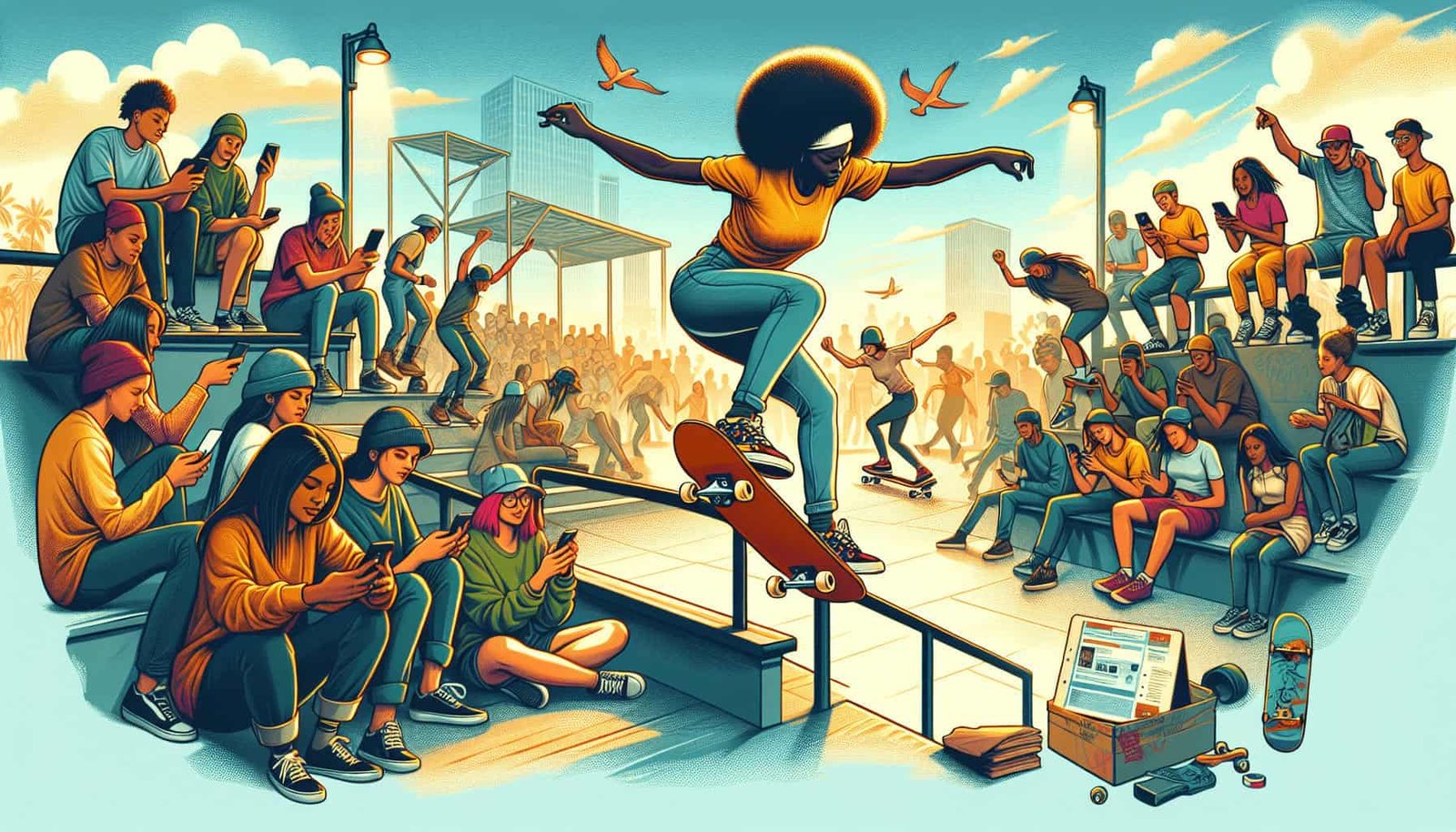
Learn from your experiences and seek feedback
After the competition, take the time to reflect on your performance and seek feedback. Here’s how you can learn from your experiences:
Reflect on your performance and areas for improvement
Reflect on your performance during the competition. Identify your strengths and areas for improvement. Did you successfully execute the tricks you planned? Were there any aspects of your performance that could have been better? Be honest with yourself and use this reflection as a learning opportunity.
Ask for feedback from judges or experienced skateboarders
If possible, reach out to the judges or experienced skateboarders who were present at the competition and ask for feedback on your performance. Request specific insights on areas that you feel need improvement. Their feedback can provide valuable guidance on technique, style, and strategy. Be open-minded and receptive to constructive criticism, as it can be instrumental in your growth as a skateboarder.
Analyze your strengths and weaknesses
Based on your reflection and the feedback received, analyze your overall strengths and weaknesses as a skateboarder. Assess areas where you excel and identify any recurring weaknesses that hinder your performance. This self-analysis will help you tailor your future training and practice routines to address those weaknesses and further enhance your strengths.
Adjust your training and practice routines accordingly
Use the insights gained from your analysis to adjust your training and practice routines. Develop a plan that focuses on strengthening your weak areas while maintaining and refining your existing skills. Incorporating new training techniques, drills, or exercises can help you overcome obstacles and reach new levels of proficiency. Regularly assess your progress and make necessary adjustments to stay on track with your skateboarding journey.
By learning from your experiences, seeking feedback, and adapting your training routines, you continuously push yourself to improve as a skateboarder. Remember that growth and progress take time, and each competition or event is an opportunity to learn and become better.
Continue participating in local skateboarding competitions and events
Participating in local skateboarding competitions and events is an ongoing journey that offers continuous growth and excitement. Here’s how you can continue your involvement:
Stay updated on upcoming events
Stay actively updated on upcoming local skateboarding events, competitions, and meetups. Keep an eye on social media accounts of skateboarding clubs, organizations, and local skate parks. Check community bulletin boards and online forums for event announcements. Networking with other skateboarders and staying connected to the local skateboarding community can also provide valuable information on upcoming events.
Maintain your skateboarding skills and progress
Consistently maintain and improve your skateboarding skills through regular practice and training. Build on the foundations you’ve established and continually challenge yourself by learning new tricks, exploring different styles, and pushing the boundaries of your abilities. Set personal goals, track your progress, and celebrate milestones along the way. Consistency and dedication are key to long-term growth and success in skateboarding.
Network and build relationships with other skaters
Continue to engage with the local skateboarding community and build relationships with other skateboarders. Attend skateboarding meetups, sessions, or club events to connect with like-minded individuals. Share your experiences, collaborate on projects, and support one another in your skateboarding journeys. Building a strong network of skateboarders not only enriches your experience but also opens doors to new opportunities and friendships.
Consider participating in larger-scale competitions or events
As you gain more experience and hone your skills, consider expanding your horizons and participating in larger-scale competitions or events. Research regional or national skateboarding competitions that align with your goals and aspirations. Push yourself to compete against skaters from different areas, challenging your abilities and broadening your exposure within the skateboarding community.
By staying updated on events, consistently improving your skills, networking with other skateboarders, and considering larger-scale competitions, you keep the momentum going in your journey as a competitive skateboarder. Embrace the process, enjoy the ride, and relish the experiences that local skateboarding competitions and events bring.
Getting involved in local skateboarding competitions and events requires both dedication and enthusiasm. By following these steps and guidelines, you’ll pave the way for a transformative and rewarding journey in the world of skateboarding. So, grab your skateboard, put on your helmet, and immerse yourself in the vibrant skateboarding community that awaits you!
